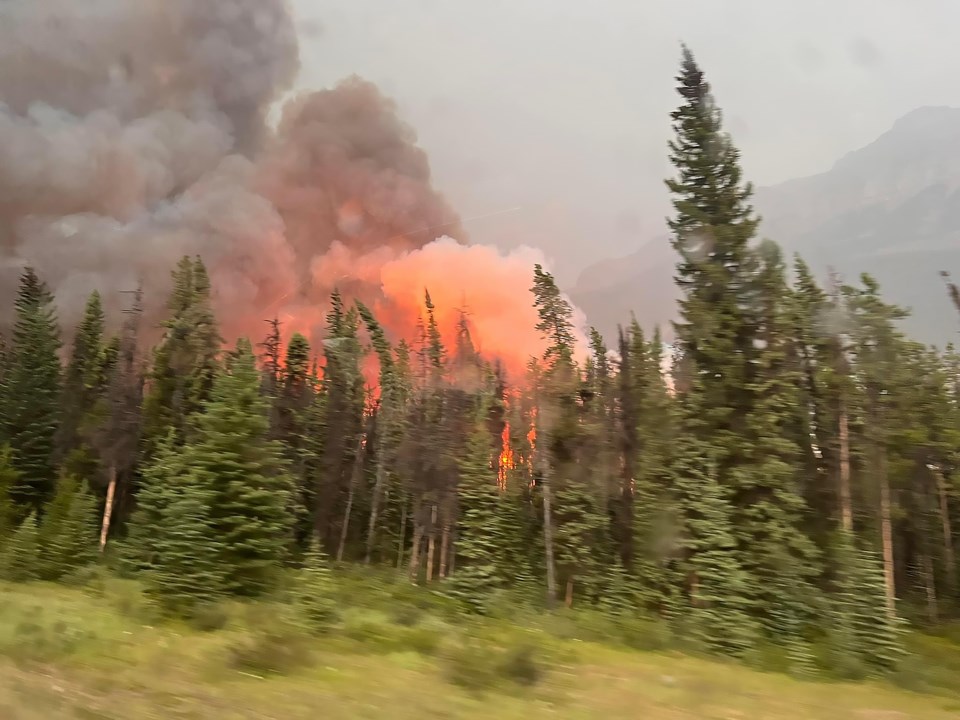The tearful performance of Alberta Premier Danielle Smith on the conflagration that engulfed Jasper seemed somewhat melodramatic as oil continued to flow unimpeded through the Trans Mountain pipeline. It reminded me of the phrase, “Nero fiddled as Rome burned.”
A petroleum industry and a captured government will never help us connect the dots between the extraction and burning of fossil fuels, increasing greenhouse gas emissions, climate change and a world made more uncertain, unpredictable and dangerous.
As John Vaillant, author of Fire Weather, points out, climate change did not light the wildfires we are experiencing. These conflagrations were instead brought about by climate change, which produces higher temperatures, lower relative humidity, higher evaporation and generally drier conditions. Climate change has brought about “the space and opportunity for fire to act explosively.”
Added to the hallmarks of 21st Century fires is our history of ending the burning practices of Indigenous peoples, a century or more of militant fire suppression, forest fuel build-ups, more urbanization of the forest fringe and climate change-inspired mountain pine beetle outbreaks. Most important is the lack of meaningful action on climate change by any level of government and the unwillingness of industry to recognize consequences or responsibilities.
What we have heard in the aftermath of the Jasper wildfire are the sophomoric remarks on who should lead wildfire operations, arguments on why more logging and cattle grazing – including in national parks – would solve the issues of wildfires and floating other diversionary tactics like taking over national parks instead of connecting the dots to these wildfires.
With their remarks, it is clear the premier and her minister of Forestry and Parks are not conversant with current forest management research. Neither is the Ministry of Forestry and Parks, which seems to operate more as an arm of the forest industry.
Of this we can be certain – forests will burn. This is coupled with a new fire regime we are completely unprepared for – less about control and more about getting out of the fire’s path. The contention we can log and graze our way out of danger has no substance in reality, but will certainly find vested economic adherents.
It is natural to fear fire and believe all fires are harmful. This has led to the vested assumptions that actions like grazing and logging are benign means of reducing risk because they remove fire fuels. Those with such simple solutions would be advised to read the results of independent researchers, found in a 2006 tome entitled Wildfire – A Century of Failed Forest Policy.
As a synthesis, the reality is large fires are usually weather-driven, favoured by drought and wind. Fuels are not the required force behind these large blazes, urged on by the development of a fire’s own weather, and so heavy grazing, logging and even forest thinning will not prevent fire spread.
We would be well advised not to accept at face value the forest industry’s and the government’s contention they have the “solution.” Independent experts point out a regenerating clearcut forest will burn as readily as an unlogged forest. Reducing fine fuels like grasses by grazing generally frees tree seedlings from competition and can lead to denser, more fire-prone stands.
A century of engaging in a war on wildfire has delivered us to the climate change doorstep of bigger, rogue and uncontrollable fires. We would be better off learning to live with fire-dependent ecosystems, allowing fire to sculpt and mould our forests in ways that reduce risk.
Part of this is acknowledging we have built our towns, cities and rural homes in the fire equivalent of a floodplain. A wise course of action is to make a few select areas defensible against wildfire by frequent prescribed burns, extensive use of FireSmart advice and full community involvement.
We need to be much more clear-eyed about wildfires in Alberta and the causes, complications and consequences. Sadly, we are unlikely to find that from the present government. Alberta will continue to burn as the oil flows and politicians fiddle with empty panaceas.
Lorne Fitch is a professional biologist, a retired Fish and Wildlife biologist and a past adjunct professor at the University of Calgary. He is the author of “Streams of Consequence: Dispatches From the Conservation World.”




